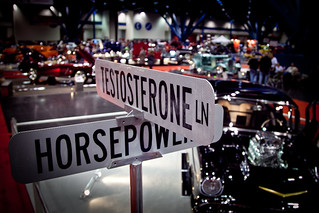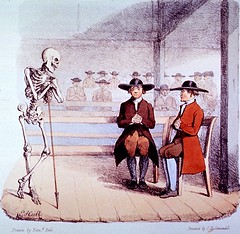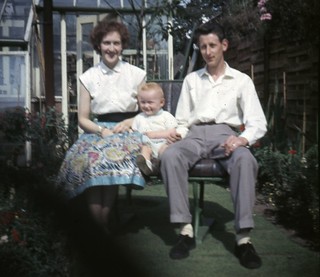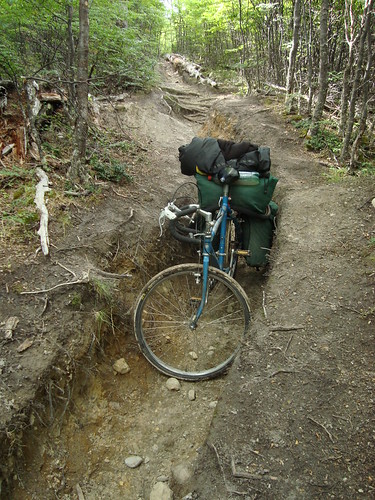Guyside: Getting testy about testosterone
 There’s no doubt that men think about the effects of aging on their bodies. And if there were, a viewing of ads for hair colouring, hair thickening agents, or erectile dysfunction drugs would quickly convince you. You could be a new man!
There’s no doubt that men think about the effects of aging on their bodies. And if there were, a viewing of ads for hair colouring, hair thickening agents, or erectile dysfunction drugs would quickly convince you. You could be a new man!
And as regular Flashfree readers will know, one of the things that’s been touted as a solution to the woes of the aging male is testosterone replacement therapy.
The basic idea is that men may have a condition that’s referred to as “Low T.” And so a gel, a patch, a tablet or an injection may bring you back to a more energetic, athletic, virile condition. The pitch has been made more and more convincingly, by all accounts: an Australian research team found that the sales of testsosterone treatments went from $150 million in 2001 to $1.8 billion in 2012.
That’s a 1200% increase. The Australian research indicated that the amount of testosterone being prescribed far outstripped the incidence of “male menopause” or andropause. So what’s going on? Oh, I suspect there’s a generous helping of vanity involved here.
But if it were simply a matter of making men feel better about themselves, it would just be a waste of money. A growing body of research evidence is suggesting that treating Low T may increase the risk of cardiac events. The most recent, an article from the open-access journal PLOS ONE, suggests a substantial increase in the risk of myocardial infarction — what we normally refer to as a heart attack — with the use of testosterone, for men under and over 65 years of age.
I’m sure there are men with diagnostic criteria that would make testosterone therapy an appropriate choice, with a careful calculation of the risks and benefits. But if my hair’s getting a little thin, if I’m not feeling as “macho” as I once was — do I really want to be using a hormone supplement that could put me at risk of a heart attack?
It’s very easy to succumb to marketing-based pitches that appeal to what we think we need as men. But it’s important for us to not jump at those pitches without thinking about the risks and the benefits carefully.
There was a rush to use estrogen and progesterone to help women with symptoms of menopause several years ago, and then a panic when those therapies were associated with increased cardiac symptoms.
I’m no doctor, and I’m certainly not saying that nobody should be using hormones in this way. But I do think that we should think through ALL of our medical decisions and ensure we’re taking the risks seriously.
(photo: CC-licenced image by Flickr user Ed Schipul)
Read MoreDeath be not complacent
 Pete Seeger died last week. He was 94. As a lover of folk music, it’s hard to imagine someone who more powerfully embodied that genre’s ideals. A man of principle who believed the best thing to do with a song was share it, a man who used his music like a well from which to draw joy.
Pete Seeger died last week. He was 94. As a lover of folk music, it’s hard to imagine someone who more powerfully embodied that genre’s ideals. A man of principle who believed the best thing to do with a song was share it, a man who used his music like a well from which to draw joy.
What struck me as I read the many tributes to him in emails, tweets, and Facebook posts was that death is different as you age. I lost an older brother at 13. That was a shattering experience. In my 20s, I can only remember going to one funeral – a young man who died tragically in a roller-blading accident. It was a poignant service.
By now, I’ve lost tons of uncles and aunts from my long-lived clan; too many. The most recent was just last week, my aunt Stella. A few cousins too, and of course, my dad. And outside of the family, I’ve lost friends, primarily to cancer, that blind killer of the old and young alike.
I have had more encounters with death than I’d prefer. But what once was momentous has become an event that is sad, inevitable, and far more anticipated than before. So what should we men of a certain age learn from death?
Don’t sit on things. When I was diagnosed with bladder cancer, it was caught early because when I saw blood in my urine, I DID something about it. Ignoring symptoms is rarely a good idea.
Acknowledge your own mortality. Yes, you feel good now. It’s easy to tell yourself — seriously — that you’re bulletproof. But be realistic. Bodies change, fitness changes; if you are an average guy, you’re likely not as strong as you were 20 years ago, as fast. Accept it (without giving in and giving up). Set fitness and activity goals that aren’t going to leave you groaning for days afterward or in the ER.
Do stuff now. When I turned 40 and got cancer, it woke me up and I made some changes that I’d idly thought and talked about for years without taking action. It’s always time to do that. Investment guru John Templeton once said “The best time to invest is when you have money. This is because history suggests it is not timing the markets that matters, it is time.” You HAVE time that you can invest in anything you want to do. Right now. Do something.
Think a little bit holistically. No, I’m not suggesting buying a juicer or getting your chakras aligned. But when I was younger, I didn’t make the connection between my body and my mind. Using tools like yoga, meditation, therapy, etc. doesn’t only improve your psychological health. It can make you exercise better and, in my experience, make you enjoy your exercise routine more by deepening your concentration.
Death is inevitable. It’s going to come to all of us at some point, and we will be reminded of that by the loss of friends and family from time to time. But don’t take that inevitability as impending doom; take it as a reminder that with a finite amount of time allocated, it’s up to us to make the most of it.
(photo Creative Commons licenced by Flickr user Leiris202)
Read MoreBalance. I have it. Sometimes.
 In my 20s, I used to work as studio director for a radio morning show. Often, I’d stay up, watch Late Night with David Letterman, and then hit the sack, only to get up and hit the road to be at the station at 5, bright-eyed and bushy-tailed with coffee for the gang. A little later on, I worked at a 24-hour news network, and my shifts were almost always 3 a.m.-11 a.m. or 4 a.m.-noon. I’d come home, do some other work, my partner would come home, and I’d almost always be in bed after 10 p.m. Five hours sleep was fine. In an magazine job, all-nighters were common as we got to production.
In my 20s, I used to work as studio director for a radio morning show. Often, I’d stay up, watch Late Night with David Letterman, and then hit the sack, only to get up and hit the road to be at the station at 5, bright-eyed and bushy-tailed with coffee for the gang. A little later on, I worked at a 24-hour news network, and my shifts were almost always 3 a.m.-11 a.m. or 4 a.m.-noon. I’d come home, do some other work, my partner would come home, and I’d almost always be in bed after 10 p.m. Five hours sleep was fine. In an magazine job, all-nighters were common as we got to production.
If I tried that now, I would implode in a week. And that isn’t always the easiest thing for a man to admit. We’re supposed to be invulnerable, aren’t we? One of the things I’ve noticed as the years have gone on is I can still be as intense as I was in the past (I think!), but that I can’t maintain that level of intensity for same length of time. I attend a music-industry conference each year where part of the deal is attending music sessions that go on until about four in the morning. I can do that, but inevitably there’s a post-conference crash.
Combine the fact that my “energy well” isn’t as deep as it used to be with the lifestyle of a self-employed consultant, where the pace can sometimes oscillate between frenetic and … what now? and you have a recipe for stress.
I have a few things I try to do to combat that stress. I try to keep my sleep habits as regular as I can. I’m lucky in that I rarely have insomnia, so it’s easy for me to stay rested most of the time. That keeps the energy supply high.
If there’s a frenetic period on the horizon, I will try to book downtime to recharge my batteries after the urgency subsides. Better to book it and keep it for myself than to carry on as if I didn’t just complete a herculean task and end up crashing.
And I try to keep my regular appointments sacred. Yoga class, exercise, and the like can sometimes feel like a distraction that I “should” skip “just this once.” But that has an impact down the road. Short-term gain for long-term pain.
It’s not easy to stay energized all the time. But if you can learn — even attempt — to manage yourself a little better, you can perform at a higher level all the time, rather than some roller-coaster cycle of sprinting, and then collapsing.
What are your tips for managing energy levels? Tell me in the comments.
Read MoreGuyside: Dealing with aging parents, guyside style.

As parents age, we have to move from being “their child” to mutual independence to their dependence on us. It’s not always easy.
One of the things about getting to this age (in my case, 47) is that you get the odd experience of parenting your parents.
I was about the last child in my generation. With both parents near the end of large families, I have a ton of cousins, many of whom are well into retirement by now. And as a late child (born to 41-year-olds), my mom (and my dad, until his death in 2012) is well into seniorhood.
It’s probably no surprise that the dynamics change when your parents age. As a child, we strive for independence from our parents. That lasts for some time and then, like a wave collapsing in on itself and running back into the ocean, dependence begins to reach back out from your parents to you.
Things that were easily done for years become more difficult. It becomes more challenging for the senior citizen to take on some of the frustrations of daily living. And if physical illnesses encroach, as they almost certainly will, that process can accelerate more and more as time goes on.
So here, from my own experience and with the help of some references I’ve found, are some tips for dealing with aging parents:
- Find ways to detach emotionally just a bit. It’s difficult to hear a parent in emotional or health difficulty. But if your emotions take over, it’s going to be difficult to truly help them. Create an outlet for your emotions, but then work on logic.
- Sometimes just listening is enough. As a guy, I know only too well I can jump to SOLVING THE PROBLEM. But sometimes, your parent won’t want a solution; they’ll want a set of ears.
- Talk to your parent or parents about power of attorney. There are times at which you may need to intercede. It’s easier to do that if you have arranged things in advance.
- Support anything your parents are interested in doing that will help their physical, emotional, or mental health. Got a 97-year-old (like my aunt) who loves to swim? Make sure he or she gets to the pool. Is someone a bridge player? Find them a club. Often, seniors lose friends and family members as they age, so new social links are important.
- Build relationships with their health care providers. As seniors age, it’s more likely they’ll have serious health concerns crop up. And seniors are more likely to have a more deferential attitude toward doctors and medical professionals than younger people. So it’s important that you be able to play a role in their health care. This doesn’t mean taking over; it can mean being a trusted resource, an advocate, or maybe just a drive to an appointment.
Guyside: Buddy, can you spare some time?
I am a wonderful avoider of exercise. When it comes down to it, part of me believes what Neil Armstrong said: “I believe that every human has a finite number of heartbeats. I don’t intend to waste any of mine running around doing exercises.”
Last month, I wrote about winter and weight. Well, it’s winter — no doubt about it. Polar vortexes (vortices?!), snowmageddons, flight cancellations by the hundreds, North America has been walloped by winter this year.
And between the weather (which has seemed to swing like a pendulum between mounds of snow and temperatures just above absolute zero), a nasty virus that laid me out for nearly a week, and the holidays, my winter exercise resolutions are already getting tattered.

Ruts are dangerous things.
So what’s a guy to do if they’re feeling behind the eight-ball? In my case, I’m gonna recruit me a workout buddy. I have some experience in knowing that the buddy system works. When I went to university about a million years ago, I nearly flunked calculus. In fact, I was severely flunking it. But luckily for me, I knew a guy in my class who was struggling as hard as I was. Jeff and I became study partners, and while we weren’t exactly prizewinners by the end of the course, we made it. Jeff was a bit of a gym rat, too, and I became a gym buddy for a while too. Not enough of one to change my body shape, but better than I was.
Years later, I was encouraged by my partner, whose self-discipline and dedication dwarf mine, to take out a family membership at the local Y. And for quite a while, we were regulars there together; she’d do cardio & I’d do weights, or vice versa.
And as a cyclist, having people who will call you up and say “Hey! You ridin’ this morning?” is a very good thing. Of course, that is only really going to help when spring begins to spring.
So as I contemplate my fitness state, I know I need a fitness buddy. And researchers who have examined the Kohler effect have found that the “buddy system” works. So I have three strategies I’m gonna follow.
#1: I am a cyclist first and foremost, so step one is to get some spinning classes booked. Once I’ve spent the money on them, my cheap side will make me go, and the combination of people I’m stronger than that I can beat and people that are stronger than me that make me want to beat them will be a good motivator.
#2: I have some friends who are in similar need of breaking Neil Armstrong’s rule about heartbeats, so I’m going to talk to them.
#3: Since neither my partner and I are skiers, we’re going to try snowshoeing. The skill level should be a little lower; the cost of buying in is definitely lower; and we’re close to some lovely nature trails. And she’ll drag my sorry butt out of the house when I won’t do it for myself.
What are your strategies for breaking out of the exercise rut?
Read More





